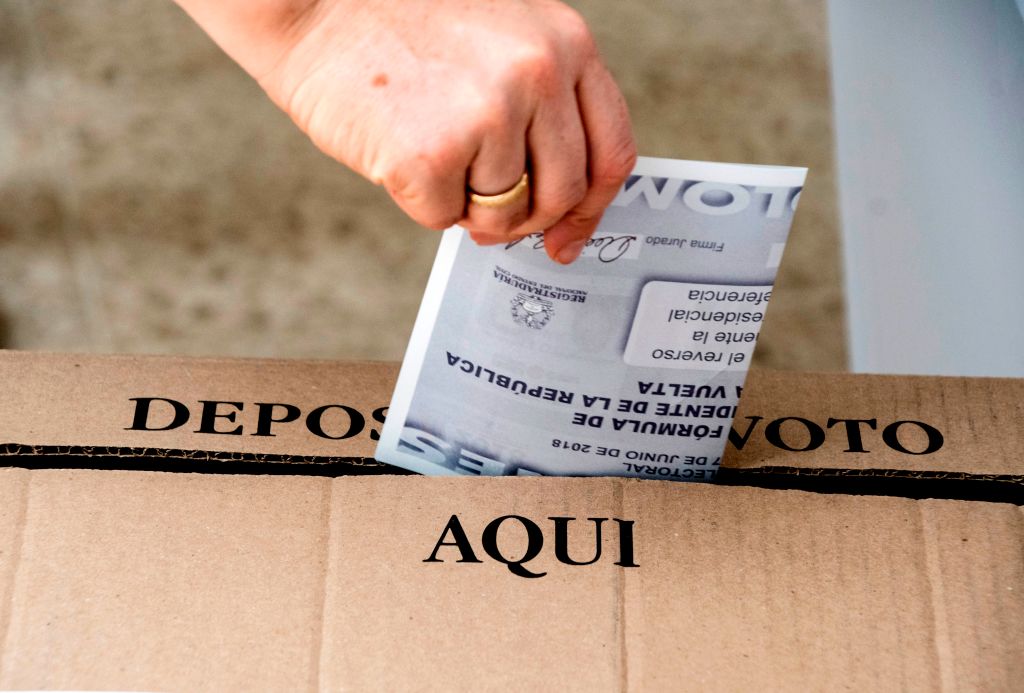Rodrigo Chaves, the former Costa Rican minister who now wants to govern 3:28
Editor's Note:
Jorge Dávila Miguel has a degree in Journalism since 1973 and has maintained a continuous career in his profession to date.
He has postgraduate degrees in Social Information Sciences and Social Media, as well as postgraduate studies in International Relations, Political Economy and Latin American History.
Dávila Miguel is a columnist for El Nuevo Herald on the McClatchy network, and a political analyst and columnist for CNN en Español.
The comments expressed in this column belong exclusively to the author.
See more at cnne.com/opinion
(CNN Spanish) --
If there is a country between the Rio Bravo and Patagonia where there are no armies, where there have been no coups in more than 100 years --although with a civil war in 1948--, and where the elections presidential elections seem to pass like the gentle waves that a boat moves on the river, that's Costa Rica.
But according to Eduardo Cruickshank, deputy and former presidential candidate in the Costa Rican elections for the National Restoration Party, in 2020 a coup was planned against President Carlos Alvarado, and because he was the president of Congress at that time they suggested that he prepare to assume the presidency of the nation, which, according to him, he rejected.
Many candidates and few voters in Costa Rica, a situation that calls for attention, says analyst
The Public Ministry of Costa Rica currently has an open investigation into said complaint.
In this regard, Alvarado said in January that he supported the opening of the investigation by the Prosecutor's Office "into the context of what happened in October 2020, because many things happened." Although he also stressed that "the monopoly of the State's force has never been was compromised."
Figueres, the former president of Costa Rica who seeks to govern again 3:16
Cruickshank assured in a book that the conspiracy took place two years ago in the Costa Rican capital, San José, where there were indeed strong popular protests with violent clashes between demonstrators and police.
The deputy later clarified that the initiative for the alleged coup d'état came from a sector of the protesters that "suggested it without success."
advertising
The alleged cause of the protests?
the negotiation of an agreement between the Government and the International Monetary Fund (IMF) for a financing of US$ 1,750 million.
Said agreement included a strong fiscal adjustment that affected the population.
This Sunday, April 3, a second electoral round will take place in Costa Rica, since none of the 25 candidates for the country's first magistracy in the first round of February reached the 40% required by electoral laws.
And according to those same laws, it is exclusively up to the two most voted candidates to participate in a new election on Sunday, April 3.
They are José María Figueres, from the historic National Liberation Party (PLN), and former Finance Minister Rodrigo Chaves, from the young Democratic Social Progress Party (PPSD).
Figueres already held the presidency of the country from 1994 to 1998 and obtained 27.26% of the votes in the election on February 6 this year, while Chaves obtained 16.7%.
It is an election threatened by the chronic ghost of electoral absenteeism in Costa Rica.
Those of February 6 had little more than 40% of absentees to the vote while at present, 18.1% of the electoral population, of some 3,500,000 voters, confesses they are undecided, as reported by the Center for Research and Political Studies of the University of Costa Rica.
The main concern of Costa Ricans at the moment is the high price of gasoline, which is expected to rise again after several previous hikes.
An issue that is difficult to resolve for any of the candidates, since international factors, all unrelated to the Costa Rican election, affect said situation.
The most important electoral issues include access to work, the situation of women, social inequality and corruption, which seems to be on the rise in Costa Rica, according to a recent study by the National University.
Costa Rica is the happiest country in Latin America 0:55
The current president of Costa Rica, Carlos Alvarado (who took office in 2018 and will leave office this year), ends his term under serious accusations.
Recently, the Costa Rican Attorney General's Office requested that immunity be lifted and trial allowed against Alvarado and the current deputy Víctor Morales Mora on charges of prevarication, fraud of law and abuse of authority of the Presidential Data Analysis Unit (UPAD).
Alvarado has admitted that mistakes were made and said that these were rectified, but that "there was never any misuse of public funds and that they always acted under the block of legality" nor "espionage."
The next election in Costa Rica can change the course of the country, promises Rodrigo Chaves, a social democrat who intends to modify the country's tax system, reorder the public budget, increase investments in green energy and change the country's vehicle fleet;
control expenses and allocate a universal minimum pension.
For his part, José María Figueres ––son of José Figueres Ferrer, three times president of the Republic and main actor in the 1948 civil war, which led him to his first presidency–– has among his campaign promises to reduce unemployment and poverty, and promote the protection of the environment by abolishing the exploitation of hydrocarbons, as well as promoting public-private partnerships, investing pension funds in public works and creating sustainable infrastructure.
This is how the candidates Chaves and Figueres promise, adversaries in the presidential election this Sunday, April 3 in Costa Rica.
The election is close.
And the future of the "Switzerland of Central America" is in the hands of the undecided.
Elections in Costa Rica


/cloudfront-eu-central-1.images.arcpublishing.com/prisa/T7IWWQIQZZHJZCRUMJSKJLCNSY.jpg)

/cloudfront-eu-central-1.images.arcpublishing.com/prisa/5OEFXRUP6BFYRM3645I2WOWNVQ.jpg)

/cloudfront-eu-central-1.images.arcpublishing.com/prisa/HLK7GOESWRBMZA2KE2VATJISN4.jpg)


